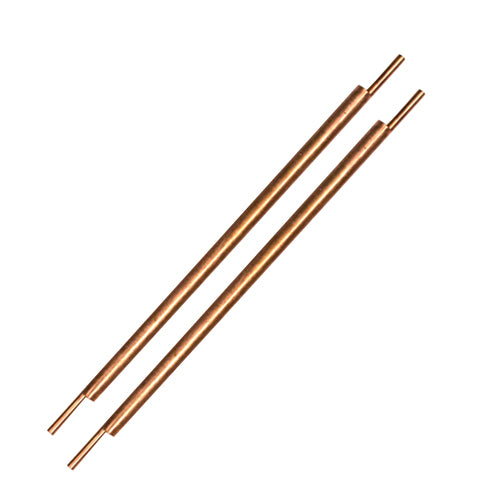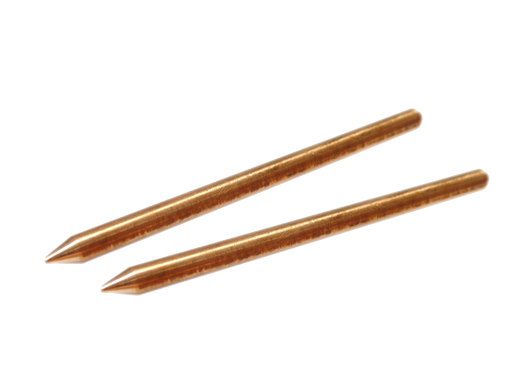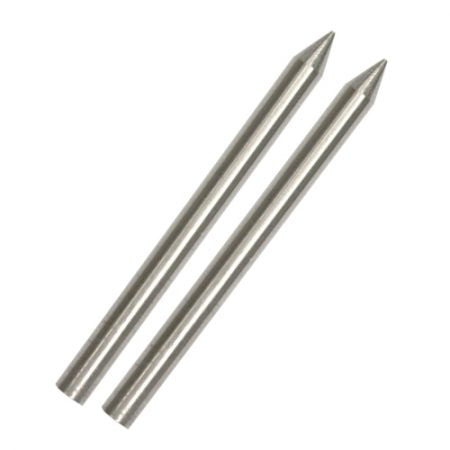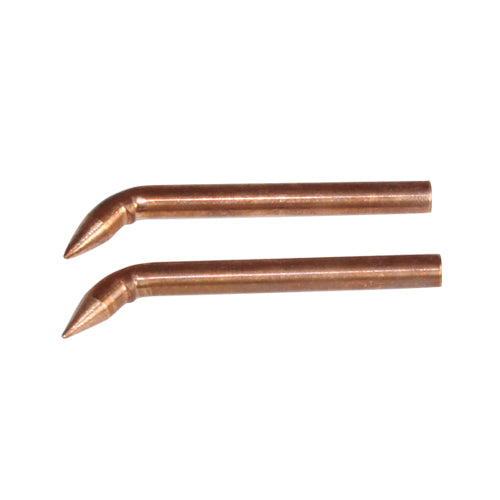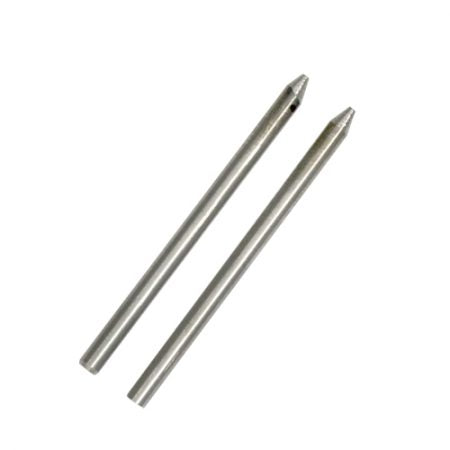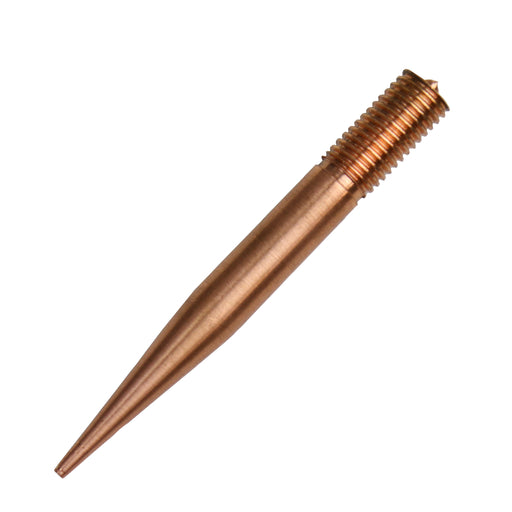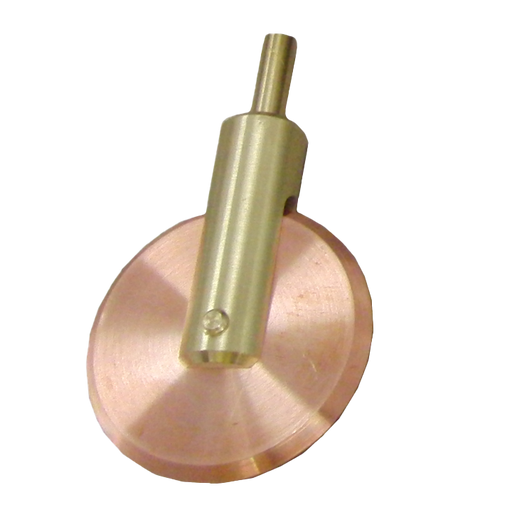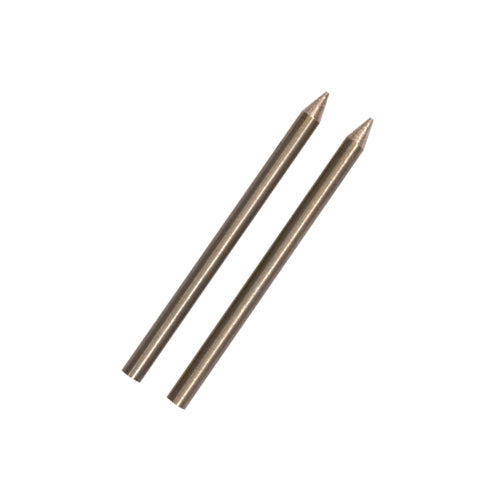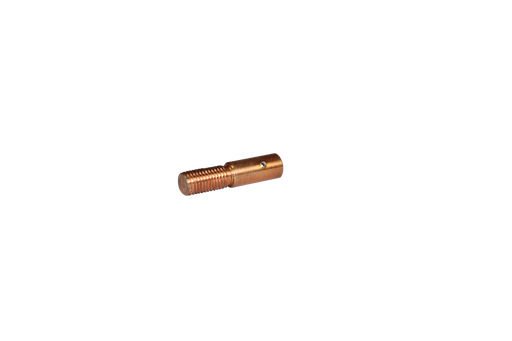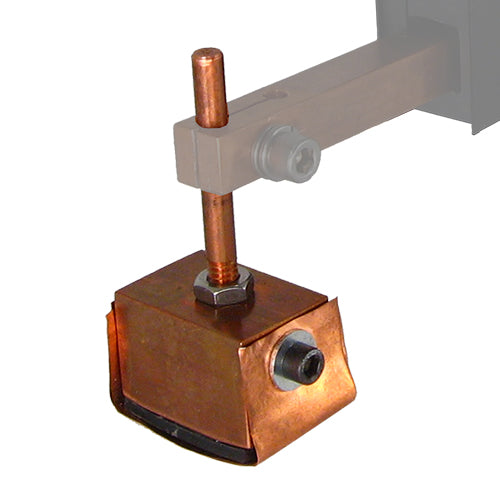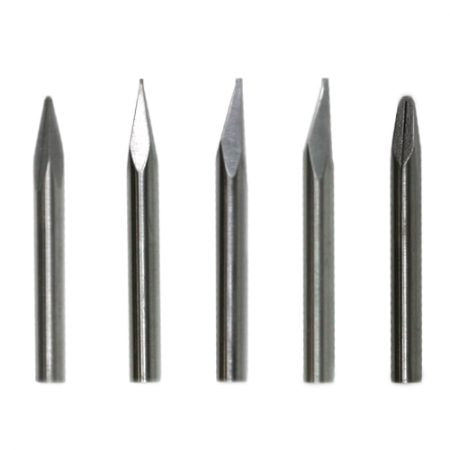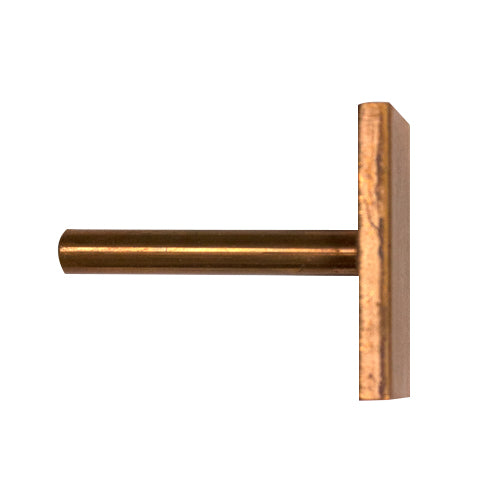Electrode Selection Guide
Resistance welding electrode selection is one of the challenges when starting out in Resistance welding. Electrode materials vary and include Copper, Tungsten, and Molybdenum; as well as various alloys of each of the above materials. Electrode size and shape are important factors in achieving the weld spot that you would like.
What Does RWMA Mean?
Resistance Welder Manufacturer’s Association (RWMA). RWMA is an organization that is under the American Welding Society (AWS), that is intended to promote resistance welding and its advancement. The use of the RWMA and number is a reference to their standards and allows for a uniform classification system to define the alloys used in welding electrodes.

What Are Welding Electrode Made Of?
RWMA 1 Copper
Copper Cadmium Alloy –
Rockwell Hardness 70B, 90% conductivity. Commonly used welding electrode alloy. Least expensive welding Material.

RWMA 2 Copper
Copper Chromium Alloy
Rockwell Hardness 83B, 85% conductivity. Used when welding steel, Nickel, and resistive materials.

RWMA 3 Copper
Copper Cobalt Beryllium Alloy
Rockwell Hardness100B, 48% conductivity.
The primary purpose is for longer electrode life, and for use with high forces. For welding resistive parts.

GLIDCOP
– Copper mixed primarily with Aluminum Oxide particles – Rockwell Hardness 68B, 92% conductivity. Similar in performance to RWMA 1 & 2, but with great strength and electrode life. Resistant to thermal softening. Used in the EL BATT Battery Electrodes.

RWMA 11 – Copper Tungsten Alloy
Rockwell Hardness 99B, 46% conductivity. Primarily used for welding precious metals & Copper Alloys. Has higher strength than RWMA 1&2, but is still machinable for custom shapes.

RWMA 13 – Tungsten
Rockwell Hardness 70A, 32% conductivity. Cannot be machined to fit a specific shape, but can be ground and sharpened to a point. Used to
weld metals such as copper and
brass and their alloys. Highest heat resistance, and strength of all electrodes.

RWMA 14 – Molybdenum
Rockwell Hardness 90B, 31% conductivity. Machineable to create custom shaped electrodes. Primarily used for welding Copper, Gold, Silver, as well as Alloys that include them.

What Electrode is Best for my Materials?
The best option is to ensure that the electrode that comes in contact with the metal matches the best material for use in welding this type. For example, you would not want to weld copper, using a copper electrode. This would cause sticking and welding of the electrodes to the base materials. Additionally, if the correct electrodes are used, and properly maintained, then sticking can be eliminated, and electrode maintenance can be nearly eliminated.

